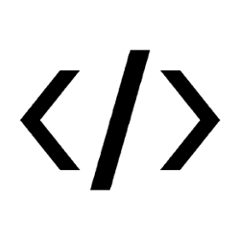angular-content-editable
angular directive for modify in real time any html tag you want
DEMO
Getting started:
Download the package using npm:
npm install angular-content-editable
Download the package using bower:
bower install angular-content-editable
or directly from github.
Add the script to your page dependencies:
<script type="text/javascript" src="angular-content-editable.min.js"></script>
And finally add content-editable to your module dependencies:
angular.module('app', ['angular-content-editable'])
and you are ready to go, add the directive to any element you want:
<a href="#!" ng-model="myModel" content-editable>edit my text</a>
Directive attributes:
- single-line: if set to true makes the enter key save and blur
- focus-select: if set to true when element goes to focus, all the text inside will be selected
- render-html: if set to true allow the text passed as input to be compiled and rendered
- edit-callback: a callback that is called wherever the model value is changed
- is-editing: optional argument that can be used to programatically enable/disable the editor
- strip-replace: optional argument that can be
trueto remove all HTML tags and line breaks,stringto remove or custom regularexpression, or array withexpressionto match withreplacementto andflagsuse:['expression','replacement','flags']
Note that, edit-callback has two arguments, that you must specify in your template to use them:
- text: the new text inside the element
- elem: the element that has been modified
Example:
<div ng-model="myModel" edit-callback="myFunc(text, elem)" content-editable>
Some content
</div>
Customizations:
You can use the contentEditableProvider to set the default settings for the directive, but you can always pass directly to the directive as attributes to override the defaults for that element.
angular.module('app')
.config(function(contentEditableProvider) {
contentEditableProvider.configure({
singleLine: true // single line for all elements
})
})
Example basic:
Simply adding the directive makes the element fully editable.
<h2 ng-model="myModel" content-editable>Change me if you like.</h2>
With single-line attribute, when enter key is pressed the editing will finish (no line-breaks):
<div single-line="true" ng-model="myModel" content-editable>Change me anyway.</div>
With focus-select all text content will be selected on element click or focus.
<span focus-select="true" ng-model="myModel" content-editable>Change me!</span>
With strip-replace attribute set as boolean:
<!-- boolean: removes all HTML tags and line breaks -->
<span focus-select="true" ng-model="myModel" strip-replace="true" content-editable>Change me!<br><b>I will become clear text without formating</b></span>
With strip-replace attribute set as array:
<!-- array: creates new RegExp() from array ['string / regular expression','replace with','expression flags'] -->
<span focus-select="true" ng-model="myModel" strip-replace="[' ','-','gi']" content-editable>Change me!</span>
If you want to run a callback you must use edit-callback attribute with a valid function and it will run every time the model value is changed.
Since version 1.2.0, after issue #13 you MUST specify the arguments text, elem if you want to use them in your callback, like in this example.
<span focus-select="true" edit-callback="myFunc(text, elem)" ng-model="myModel" content-editable>Change me!</span>
angular.module('myApp')
.controller(function($scope) {
$scope.myFunc = function(text, elem) {
// do something magic
}
})
This gives the ability to pass additional arguments to the callback, because is executed with the parent scope.
Development:
If you want to fork you copy of the project and modify it:
npm install angular-content-editable // install module files
npm install // install dependencies
Than a Gruntfile is ready with this actions:
grunt // watch to /src folder and rebuild the package
grunt build // build the package for distribution
Contributing
- Create an issue and describe your idea
- Fork the project (https://github.com/codekraft-studio/angular-content-editable/fork)
- Create your feature branch (
git checkout -b my-new-feature) - Get the development environment set up (
npm install) - Commit your changes (
git commit -am 'Add some feature') - Add some test for your new feature (
npm test) - Build the directive with the new changes (
grunt build) - Publish the branch (
git push origin my-new-feature) - Create a new Pull Request
